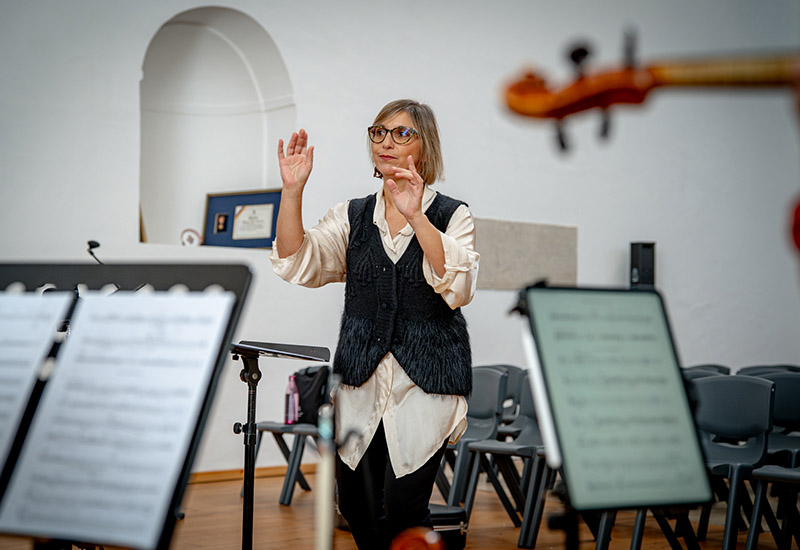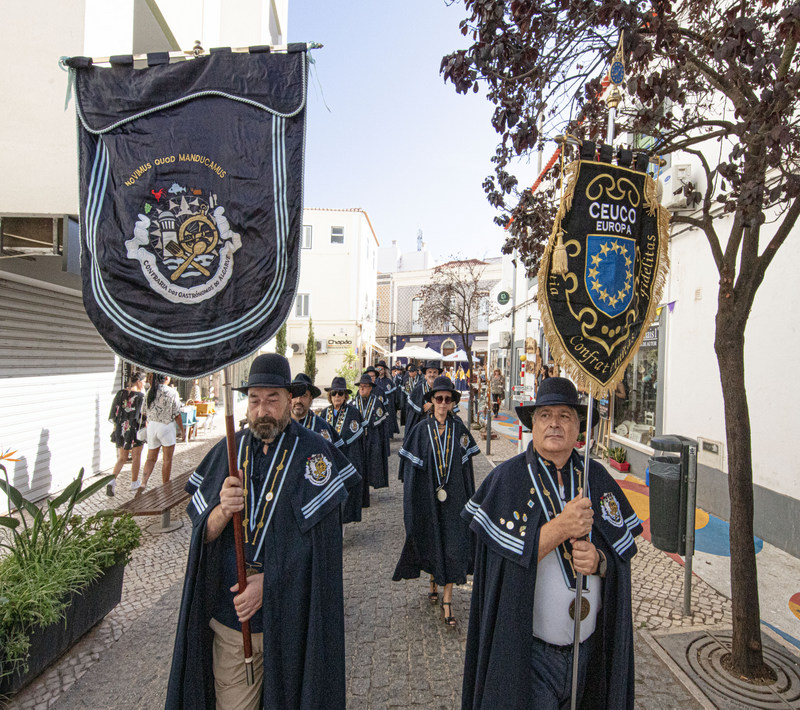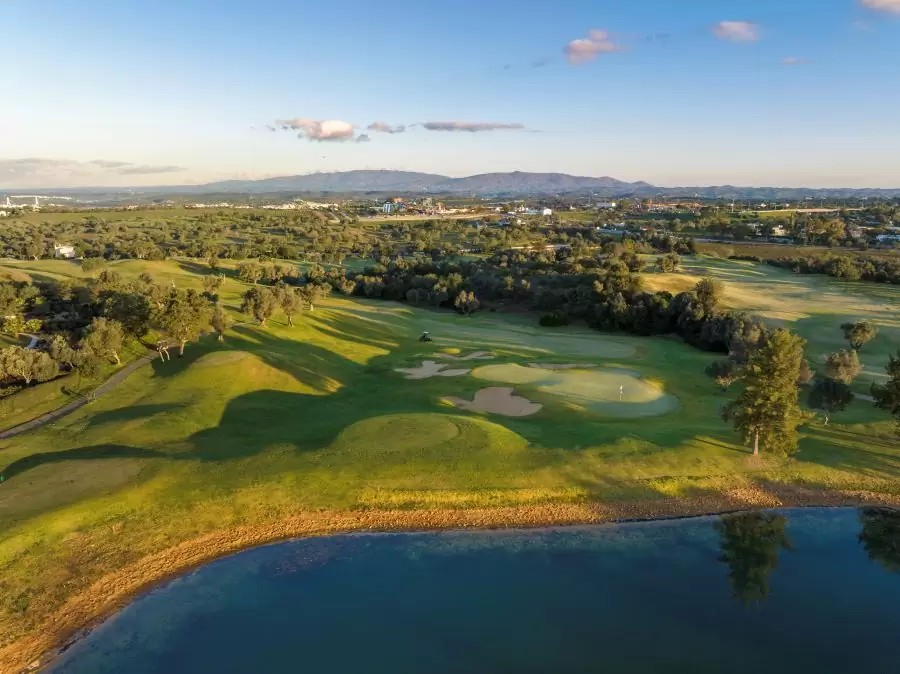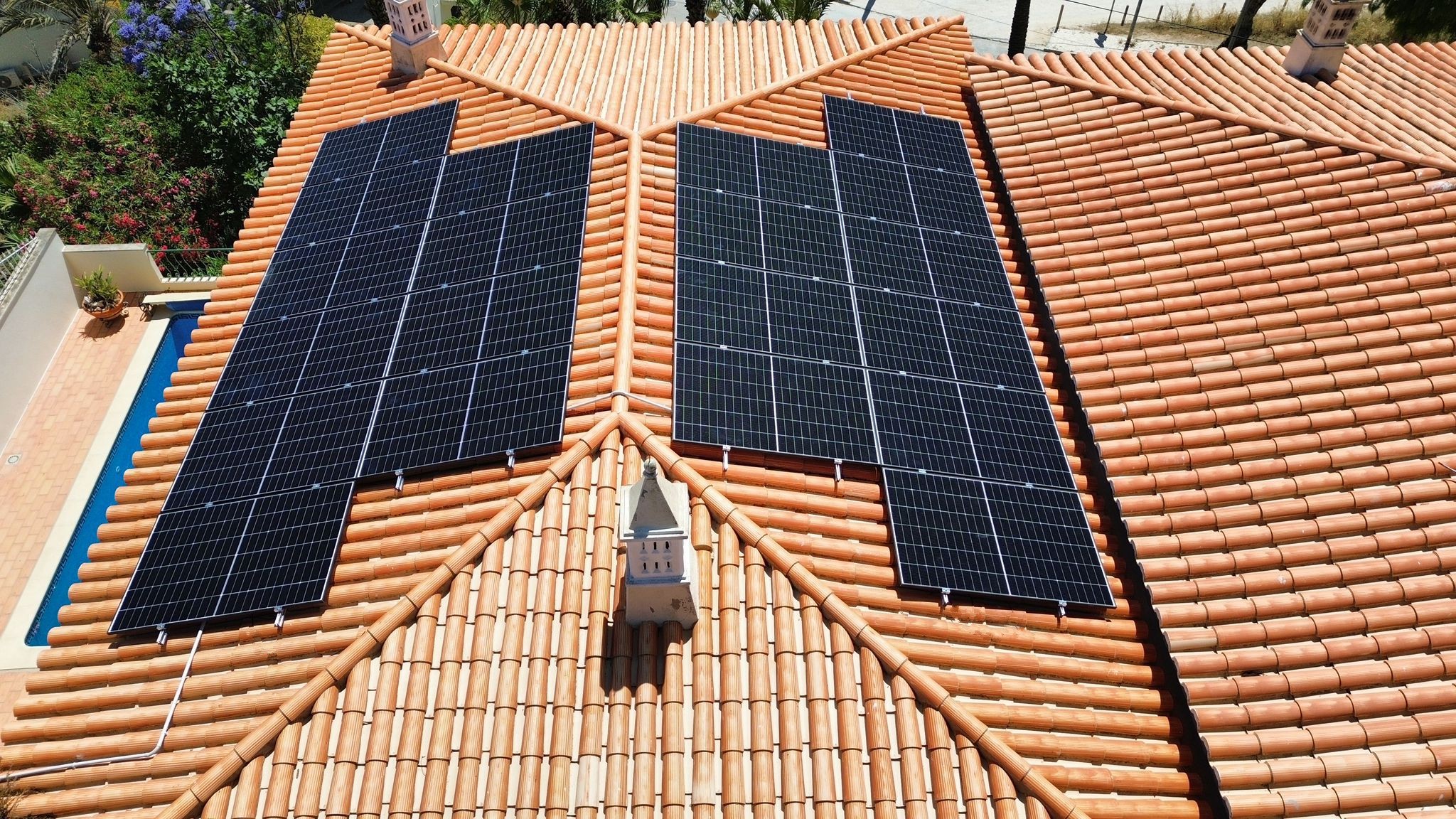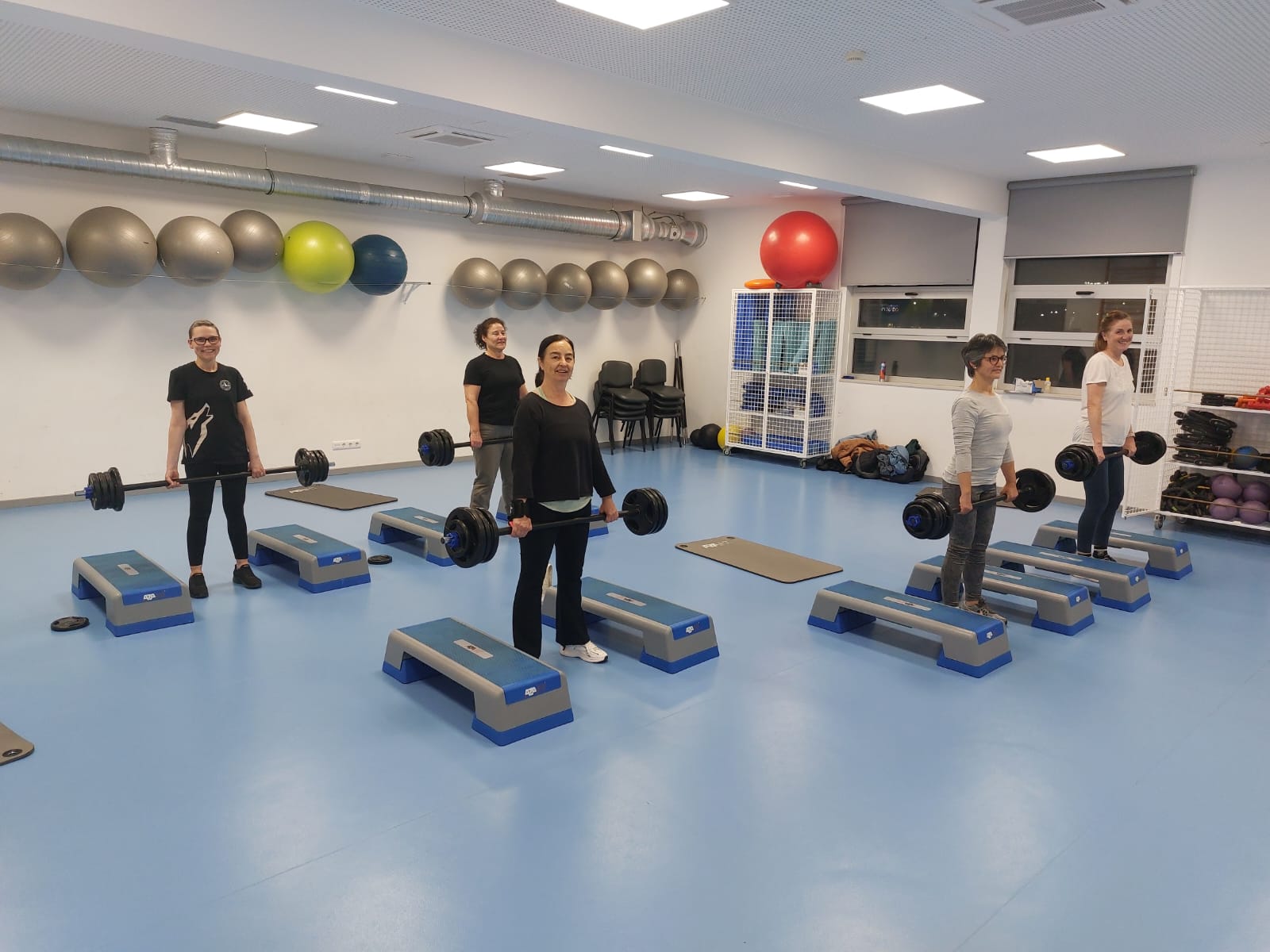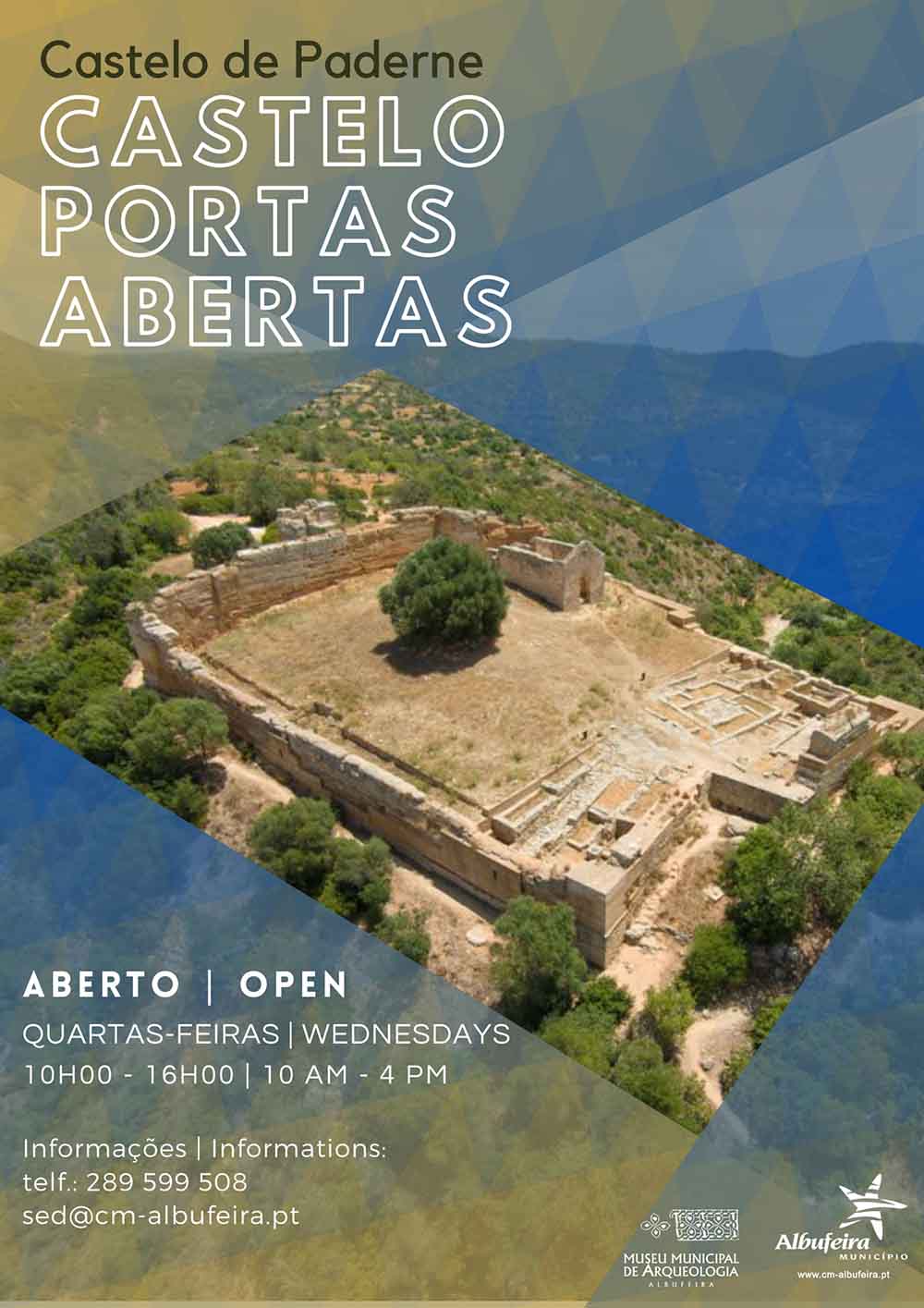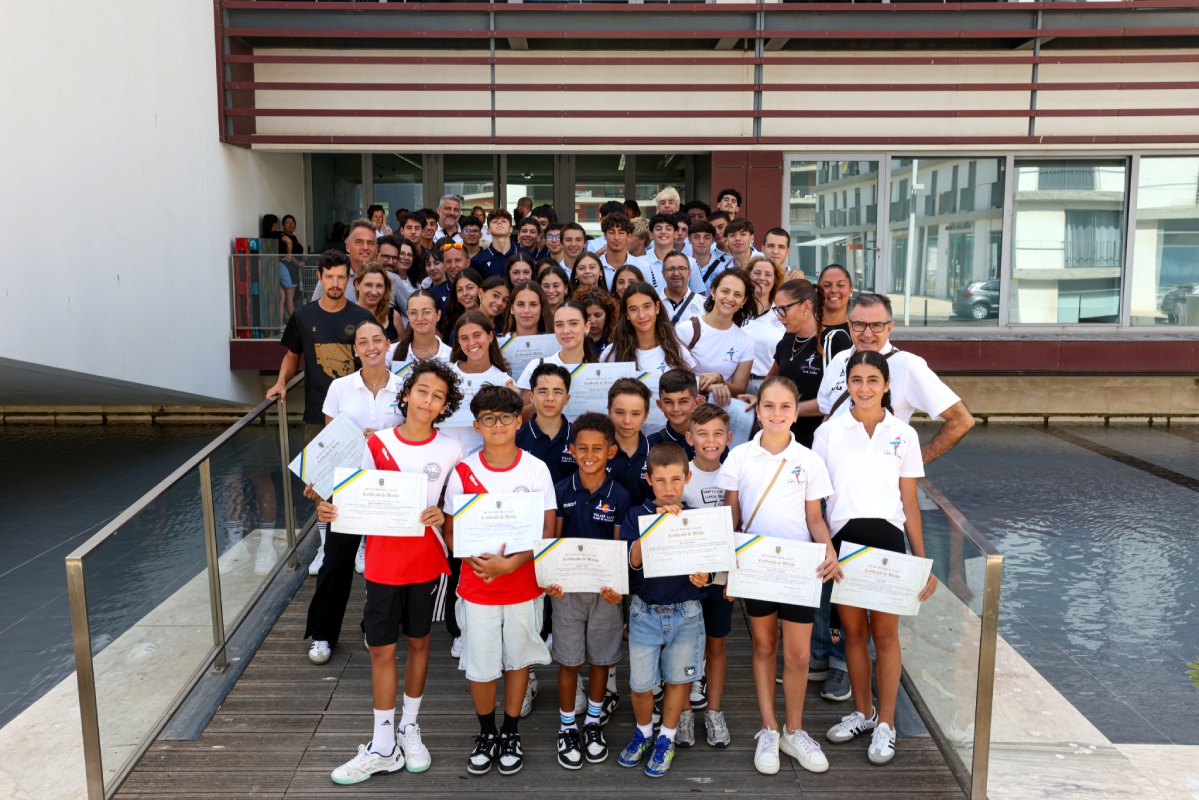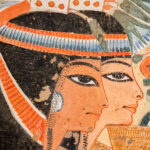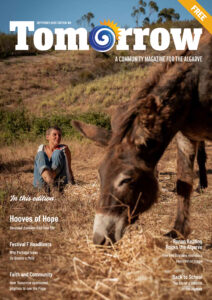As the Lagos Choral Group Association approaches its 50th anniversary, it’s clear that this ensemble is more than just a collection of voices: it’s a testament to the enduring power of community and music in Lagos. I had the pleasure of meeting Vera Batista, the esteemed choral director whose deep musical lineage and passion have been instrumental in shaping the group’s legacy.
Vera, with her warm and unassuming demeanour, might shy away from the spotlight, but her influence on the choral scene in Lagos is undeniable. She views herself primarily as a conductor and teacher, despite her considerable vocal talent, which occasionally steals the show during rehearsals. One choir member jokingly tells me, “On occasions, she will sing a phrase to demonstrate how it should be performed. It sounds so good, we look at each other and think, ‘Why are we bothering? She should sing it all’!” Vera is also the choral director of the Philharmonic Society of Silves.
The roots of the Lagos Choral Group stretch back to 1976, when Maestro José Maria Pedrosa, a former priest, moved to Lagos and founded the Lagos Choral Group. Vera’s grandmother, Deolinda Fernandes, was one of the first people to join the choir. It was the first choral group in the Algarve during a period of significant cultural and political upheaval in Portugal, when music became a vehicle for expression and protest.
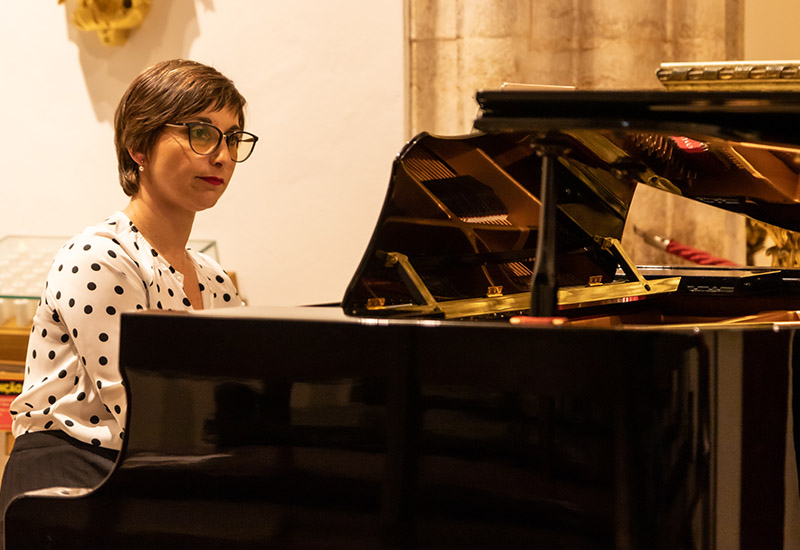
Vera’s introduction to music came from her grandmother, who is now 83. She clearly remembers going to rehearsals with Deolinda. “I started singing there when I was ten years old,” recalls Vera. “That’s how I discovered choral music.” She obtained a degree in piano at the University of Music of Évora and subsequently studied for a master’s degree in choral conducting at the Instituto Piaget of Almada, near Lisbon. Vera began teaching piano and choral music at the age of 18. After studying, she travelled in Portugal with people she met at university, taking part in concerts while always keeping her roots in Lagos.
Vera took on the role of choral director of the non-profit cultural association of Lagos with the aim of teaching and promoting music, particularly choral music. Established by public deed on 2 November 1976, its three sections include: Lagos Choral Group, Lagos Children’s and Youth Choir, and the Lagos School of Music and Arts (Conservatório de Música e Artes do Lagos). The association has produced 46 annual editions of the Algarve Choir Festival and 21 editions of the Youth Choir Meeting in Lagos, along with one opera, six plays, four CDs and countless concerts. It received the Municipal Medal of Merit – Gold Degree in October 2001.
Within its organisational structure, the Lagos Choral Group Association encompasses the Conservatory, where Vera teaches, as one of its divisions. The Conservatory is supported through a sponsorship contract with the Ministry of Education. It aims to promote the cultural and educational activities for children and young people, and about 90% of its students study there alongside their academic education with no charge.
Starting in the 2018–2019 academic year, the music school coordinates music education initiation, basic and secondary. It currently has 21 teaching staff offering a varied range of lessons in 16 instruments in addition to classes in painting and drawing, and dramatic expression. They are supported by the administrative president, IsabelTavares.
Many musicians from Lagos, who are established in their musical careers or just starting out, began their musical studies at the Lagos Choral Association. Along with Vera herself, the following musicians stand out as a testament to the association’s success in nurturing young talent: Maria João Veloso, José Carlos Bago d’Uva, Tiago Cutileiro, Joaquim Pedro Galvão, Paulo Galvão, Maria João Cerol and Inês Lopes, among others.
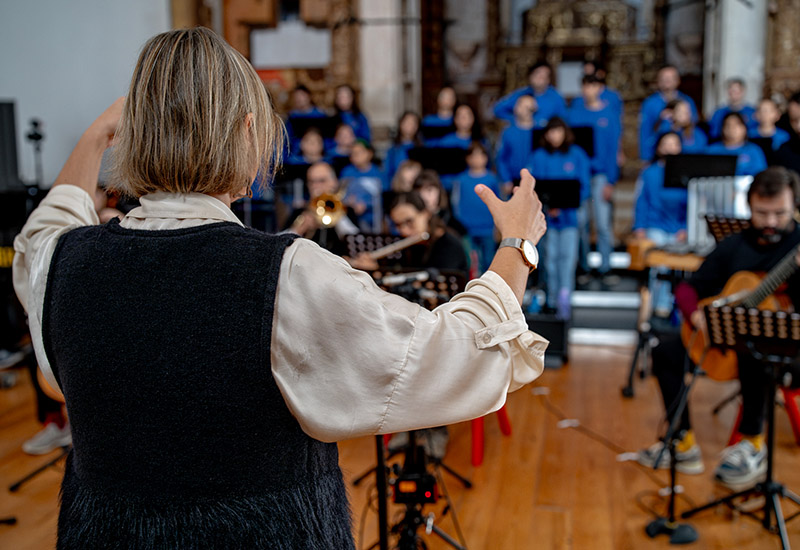
Lagos Children’s and Youth Choir, which currently has 30 members, practises every Monday from 6.30 pm to 8 pm. The adult choral group with 45 members practices two days a week, Mondays and Thursdays, from 8 pm to 10 pm. I ask about the audition process. “It’s not difficult to get in the choir; mainly it’s important to have a nice voice and to sing in tune.” Vera also encourages pupils in the children’s choir to progress into the adult choir.
Choir member Michael Upton says, “I’ve been with Grupo Coral de Lagos for over three years. Having sung with various choirs in England, Singapore and elsewhere, I’ve found Vera’s leadership most inspiring. She’s meticulous in getting every phrase, every chord right; she misses nothing, but always tempers her corrections with good humour.”
Looking ahead, the choir is buzzing with excitement about their upcoming performance in Marrakesh and the celebration of World Coral Day, an opportunity that highlights members’ role as cultural ambassadors of Lagos. Despite the perennial challenges of funding, the support from the Lagos municipality and the local community continues to fuel their artistic endeavours.
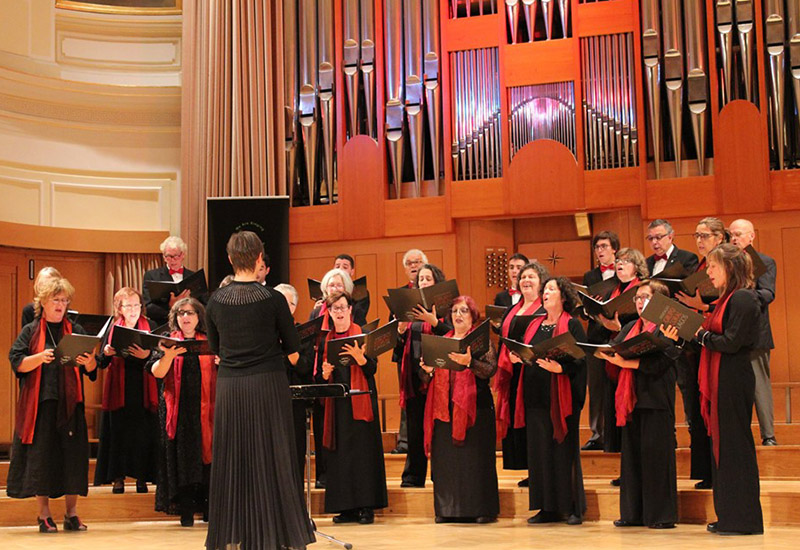
”Of course, every music group always needs more funding,” sighs Vera. “But on the whole, I think Lagos municipality is supportive of our group and the arts. There is now a great community of artists in the area.”
The adult choral group is a blend of seasoned singers and enthusiastic newcomers. They practice diligently, led by Vera’s expert hand and the melodic accompaniment of pianist Cristiana Silva. The group’s repertoire is impressively diverse, spanning multiple languages and genres – from classical masterpieces to traditional African songs – reflecting the multicultural tapestry of its members.
The choir is secular, but its practice space in the religious space of Igreja Nossa Senhora do Carmo resonates with the spirit of unity and harmony that Vera fosters. Whether they are mastering the nuances of a complex classical piece or learning the lyrics of a song in Swahili, the choir’s commitment to mutual understanding and artistic excellence is palpable.
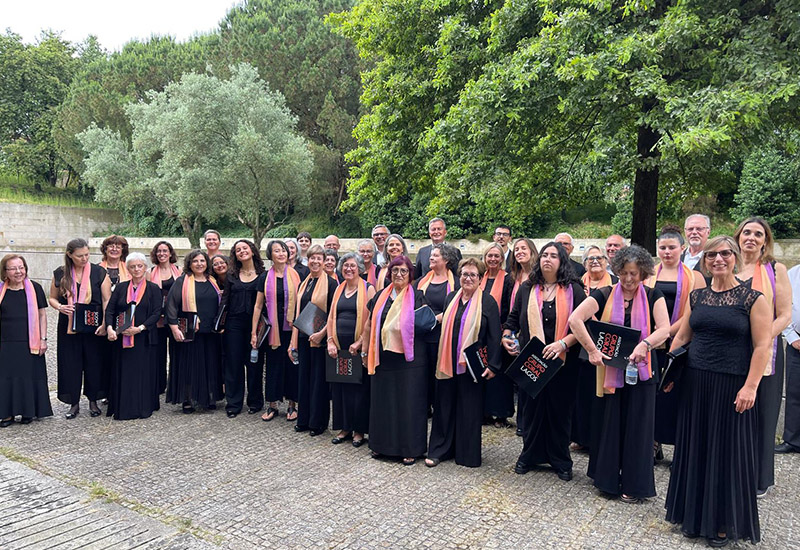
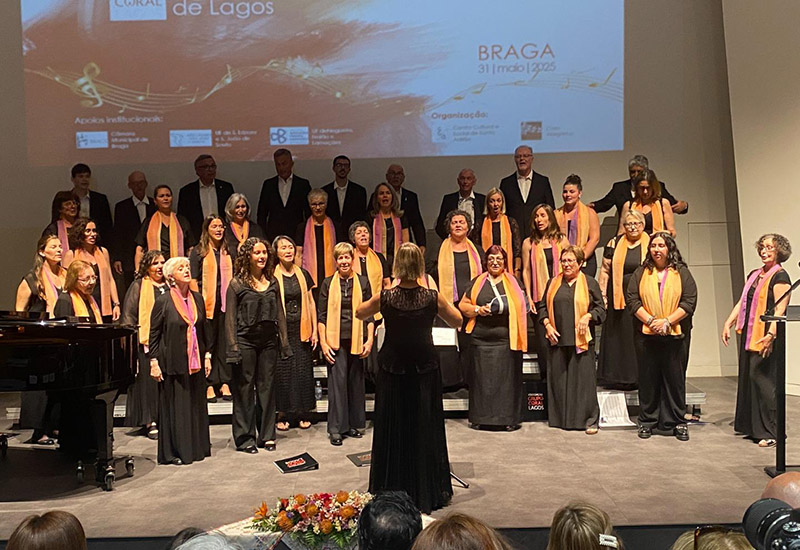
Michael Upton highlights the eclectic range of the choirs. “Vera is very versatile and happy in any genre from Albinoni to Duke Ellington. Latin, French and Swahili are some of the languages we have sung in, and we recently performed a native Amazon song portraying a rainforest thunderstorm, which received rapturous applause from the audience.”
Over the choir’s history, it has delighted audiences with hundreds of performances in Portugal, Azores and Madeira, and abroad (Belgium, Italy, Spain, Slovenia and Holland), with highlights including: Missa Brevis K.V. 49 by Mozart, German Mass by Franz Schubert, Magnificat by Eurico Carrapatoso, Requiem by John Rutter, Encomendações das Almas by Lopes Graça and Coronation Mass KV 317 by Mozart.
Vera’s belief in the choir’s social and therapeutic benefits is a sentiment echoed by many of its members. The choir not only offers a respite from the daily grind but also serves as a vital social outlet, particularly for its more mature members. It’s a place where friendships are formed, cultures intersect, and the collective joy of making music lifts spirits and strengthens community bonds.
“Singers from different countries can teach new things to the rest of the choir. So we are learning all the time. As well as Portuguese members, we have singers from Sweden, Italy, Belgium, the Czech Republic and Ireland. This makes it very interesting because it’s a mix of cultural identities. In Portuguese, we say ‘salutar’, which means it’s very healthy, because we can mix them all together.” There is also a strong social element. “A few weeks ago, we went for a picnic and a walk in the forest. And then we sang together. It was really nice.”
As the Lagos Choral Group Association nears its half-century mark, it stands as a beacon of cultural richness and communal harmony in Lagos. With Vera at the helm, the choir continues to be a source of pride and joy for the community, a place where every note sung is a note of hope and connection. Here’s to many more years of beautiful music and shared moments in Lagos.


